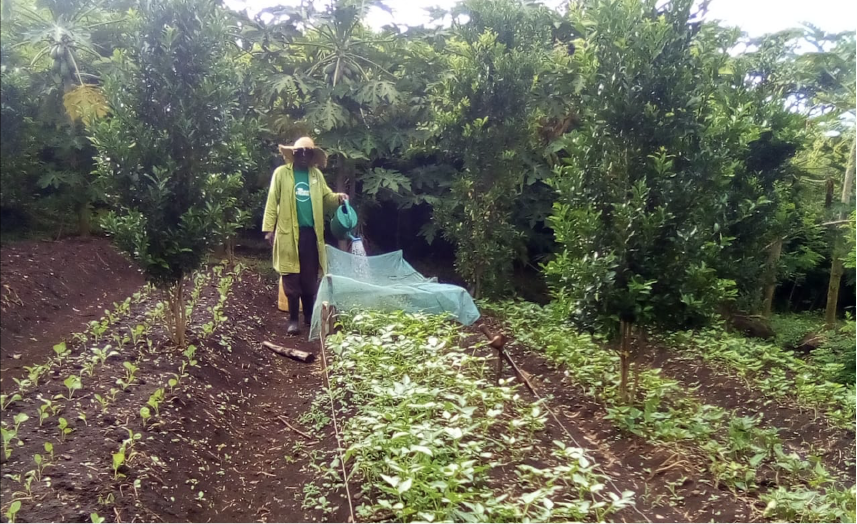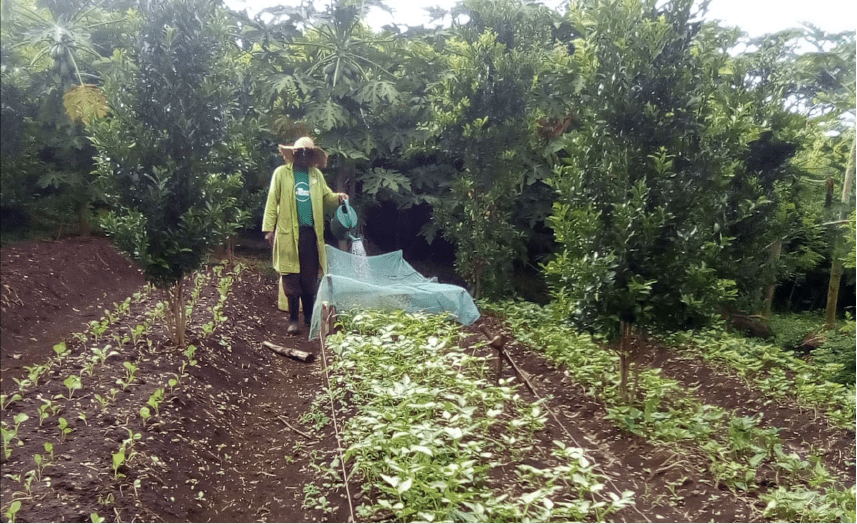Agroforestry and sustainable farming practices have helped Kenyan farmer Peter Aloo transform his land. Since joining regenerative agroforestry nonprofit Trees for the Future (TREES) in 2018, Aloo has planted thousands of agroforestry trees and dozens of fruit trees. He’s particularly proud of his pawpaw tree orchard. Pawpaw trees are a popular fruit tree in Kenyan Forest Gardens, offering shade and regular harvests. The nutritious fruit is in high demand in Kenya, providing a reliable income for Aloo and his family.
“I have been savoring the benefits of my Forest Garden,” says Aloo. “This is a good model that other farmers can learn from, as it has proven to be an income earner.”

Peter is one of 382 participants in TREES’ Homa Bay One project. Local TREES staff spend four years training the participants to protect their land, diversify their crops, and optimize their space. Peter and his fellow participants are currently in year two of the program and are learning about protection.
TREES Homabay One Lead Technician John Ogweno works closely with Peter and other farmers and says the skills they’ve learned have already helped to transform their lives and their farms.
“I am indeed impressed by the change in livelihood for this family. Every member of the family is happy and engaged in the farm,” Ogweno says.
Aloo says he and his fellow participants rely on the support of their families to ensure the success of their Forest Gardens.
“As families, we usually reason together in our Forest Garden, identify prevailing challenges, and strategize how to tackle them as a team,” he says.
Learn more about Trees for the Future’s approach and donate to help farming families like Peter’s.
